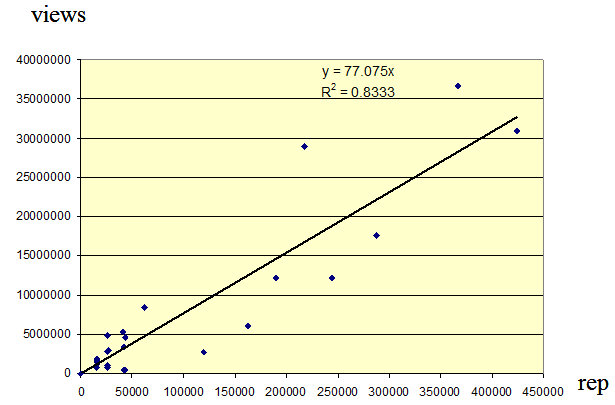The Stack Exchange websites are run for profit, and they work by publishing questions and answers that are valuable by two measures: the number of clicks they gain, and how many points they get given by users. It's in the company's interest for the two measures to stay correlated; and while the first correlates with profit, the second correlates with reputation points because every time a contribution is marked as good its author gains reputation.
So I wondered whether the company uses a rough conversion rate between reputation points and US dollars, and if so what that rate is, or if they don't use a rate or don't want to reveal it then what the rate might reasonably be. Of course the relationship might not be linear, so for example if a 1k-rep user's work is worth $100, a 100k-rep user's work might be worth $20000 and Jon Skeet's 1.1M rep...well I don't know!
For comparison, here are some articles on the value of a "like" on other social media sites:
"What is the Real Value of the Facebook “Like”?"
"What is the value of a ‘Like?’"
"What’s the Value of a Like?" (Harvard Business Review - they cite a recent report showing that 80% of the US companies surveyed were "unable to quantify the value of their social media efforts", but they are looking at companies that advertise on Facebook rather than Facebook itself)
Edit
A quick and dirty calculation using
(estimated value of company, $500m or £400m) / (estimated total rep, 2 x 109 points)
gives a figure of $250 or £200 per 1000 rep.

